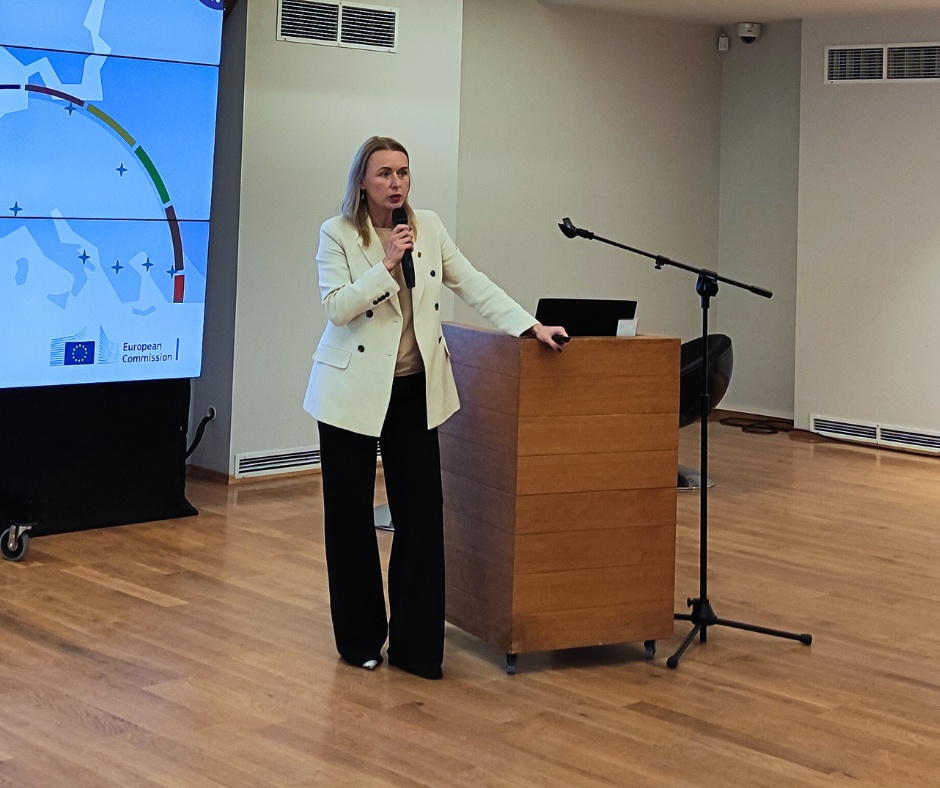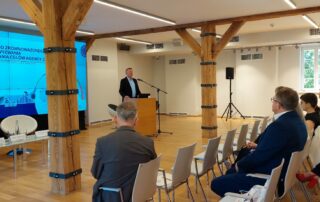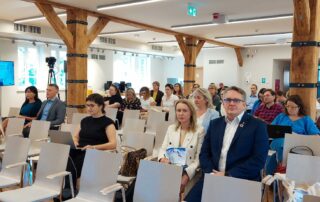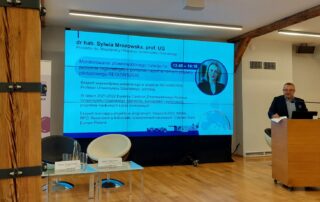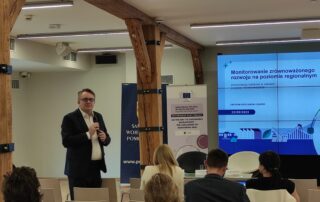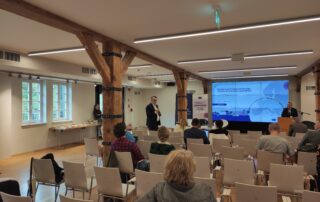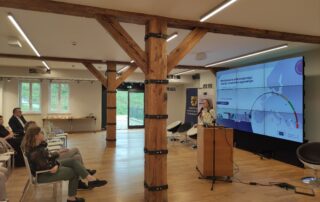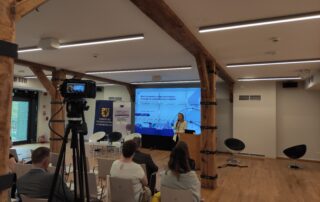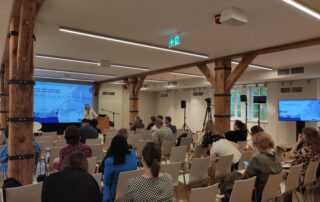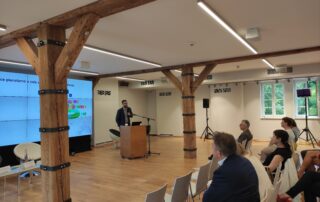The conference of the Marshal’s Office of the Pomorskie Voivodeship “On the road to sustainable development – the challenges of monitoring the 2030 Agenda goals” took place on Friday, 22 September. At the Hevelianum Centre in Gdansk, the report ‘Monitoring the SDGs in Pomorskie region, Poland’ was presented as part of the pilot project ‘REGIONS 2030’.
The aim of the project REGIONS 2030: Monitoring the SDGs in EU regions – filling the data gaps of the Joint Research Centre of the European Commission is to monitor the implementation of the Sustainable Development Goals in selected regions of the European Union and to explore synergies between monitoring and policy-making for sustainable regional development. The project will also result in the definition of a framework to enable local authorities to monitor the SDGs on their territory and to support and strengthen regional statistical data collection capacities. The Pomeranian Voivodeship’s partner in the project is The Centre for Sustainable Development UG, providing the necessary scientific and technical support.
Pilot project
The conference was attended by representatives of local authorities from the Pomeranian Voivodeship, national leaders, European Commission representatives, scientists, and entrepreneurs. The University of Gdańsk was represented by the Vice-Rector for Cooperation and Development UG, dr hab. Sylwia Mrozowska, prof. UG, the Director of The Center for Sustainable Development UG (CZRUG), dr Krzysztof Szczepaniak, and the Vice-Dean for Student Affairs of the Faculty of Social Sciences UG, dr Barbara Kijewska. The conference was chaired by Adam Mikołajczyk, Director of the Department of Regional and Spatial Development.
The introductory word was delivered by Leszek Bonna, Deputy Marshall of the Pomeranian Voivodeship, who welcomed all the guests. As he emphasised, creating a coherent, universal and standardised set of indicators for monitoring and reporting on sustainable development goals for all regions is not an easy undertaking. The Pomeranian Voivodeship was selected as one of ten European regions for this pilot project. The deputy marshal pointed out that the voivodeship was keen to join the project as its themes are of great and practical importance for the planned regional development policy.
The floor was then taken by Cecilia Bertozzi, project manager from the Joint Research Centre – European Commission.
Sustainable development globally and locally
The first session, ‘Sustainable development goals – European and national perspectives’, was opened with a speech entitled ‘On the path to sustainable development – Territorial perspective of green industrialisation’ by Wiktor Szydarowski, Director of ESPON EGTC. This was followed by Aneta Piątkowska, Deputy Director of the Department of Economic Analysis at the Ministry of Development and Technology, with her talk ‘Halfway – to the Report!’.
Sustainable development at the regional level was the main topic of the second session, ‘Challenges of monitoring the goals of Agenda 2030 from the perspective of the regions’. The President of Innobaltica Sp. z o.o., Radomir Matczak, took the stage with his presentation ‘The year 2044: the first Polish zero-emission region’. Radomir Matczak emphasised that certain tough rules are needed in a region that would one day like to approach climate neutrality. Among these, he listed drastically reducing greenhouse gas emissions, reducing demand for natural resources, energy and food, halting uncontrolled suburbanisation and loss of biodiversity, and strengthening awareness and involvement of citizens, the public sector and local government organisations.
Report: identification of indicators, challenges, conclusions
This was followed by a presentation of the report ‘Monitoring the SDGs in Pomeranian region, Poland’ as part of the REGIONS 2030 project. The report was presented by dr hab. Sylwia Mrozowska, prof. UG, who was the expert preparing the publication for the Pomeranian Voivodeship. In her presentation, she focused on explaining the identification of indicators for the voivodeship proposed by the Joint Research Centre. She also outlined the challenges of data availability and collection; as she pointed out, not all JRC indicators are available or achievable for the Pomeranian region. In the expert’s opinion, a uniform system for monitoring the achievement of sustainable development goals for all regions of the European Union should cover all SDG targets, allow for interregional comparisons and reflect the regions’ efforts towards the 2030 Agenda. It is also vital to balance indicators and find a compromise between national and regional targets.
The following employees of the UG Centre for Sustainable Development were also involved in the creation of the report: dr Krzysztof Szczepaniak, dr Barbara Kijewska, Jolanta Mrozek-Kwiatkowska and doctoral student Bartosz Duraj. The CZRUG was supported in the analysis of the state of implementation of sustainable development goals in the region by practitioners: the Director of the Statistical Office in Gdańsk, dr hab. Jerzy Auksztol, and Iwona Borkowska with the team from the Department of Regional and Local Development of the Marshal’s Office of the Pomeranian Voivodeship.
The conference was concluded with a discussion between the speakers and guests.
Among the regions participating in the REGIONS 2030 project, apart from Pomorskie (Pomeranian), were: Βόρειο Αιγαίο (Northern Aegean Islands, Greece), Δυτική Μακεδονία (Western Macedonia, Greece), Comunidad Foral de Navarra (Spain), Andalusia (Spain), Piedmont (Italy), Puglia (Italy), Centro (Portugal), Nord-Vest (Romania), and Manisa, Afyonkarahisar, Kutahyatr and Usak (Turkey).
More information on the project can be found on the European Commission website:
Sustainable Development Goals: EU regions’ engagement and filling the data gap (europa.eu)


